Abstract
Key pecking by 6 pigeons was maintained by a fixed-ratio 30 schedule of food presentation while body weights were 80% of free-feeding weights. Acute administration of cocaine (0.3 to 13.0 mg/kg, i.m.) dose-dependently decreased response rates. Dose-effect curves were shifted to the right when 3 of the 6 pigeons were maintained at 70% of free-feeding weights and were shifted to the left when the other 3 pigeons were maintained at 90% of free-feeding weights. Then a dose of cocaine that initially decreased response rates by more than 95% of control rates was administered before each daily session. Comparable degrees of tolerance to these rate-decreasing effects developed in the two groups. The rate at which responding recovered was relatively rapid for pigeons in the 70% free-feeding-weight group and was slower for 2 of the 3 pigeons in the 90% free-feeding-weight group. When body weights were then increased from 70% to 80% or were decreased from 90% to 80% of free-feeding weight, performance was disrupted initially only for pigeons whose weight went from 70% to 80% of free feeding. In the present experiment the degree of deprivation may have indirectly influenced the degree of tolerance that developed to cocaine's response rate-decreasing effects because it directly influenced the dose chosen to be administered chronically. The degree of deprivation appeared to have a more direct influence on the rate at which tolerance developed.
Full text
PDF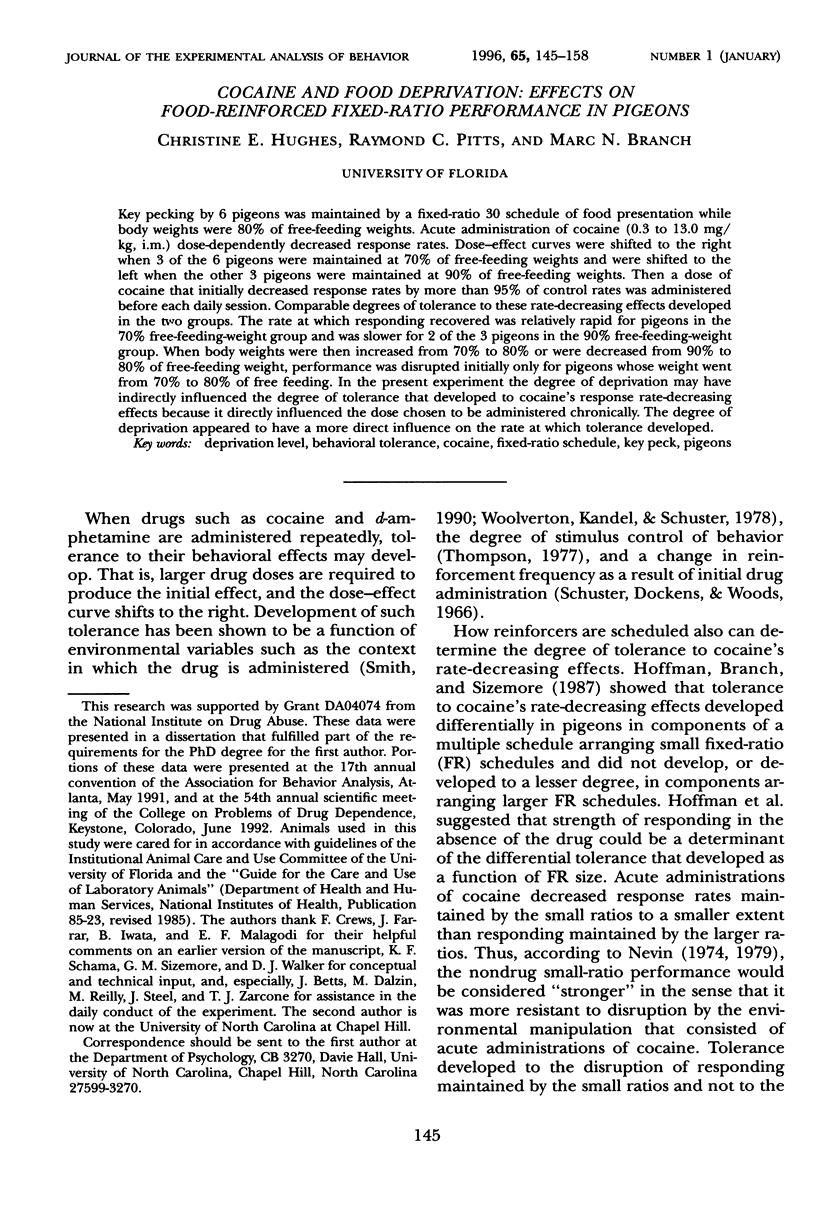
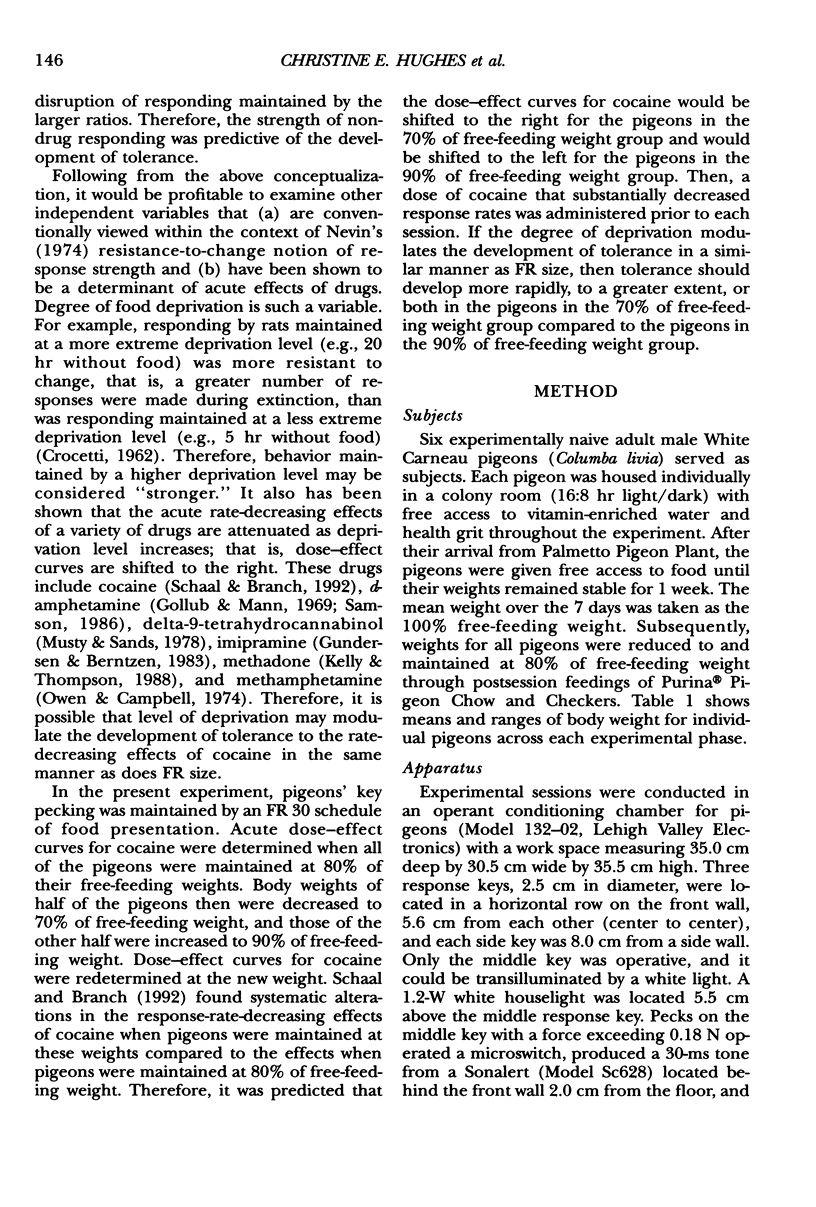
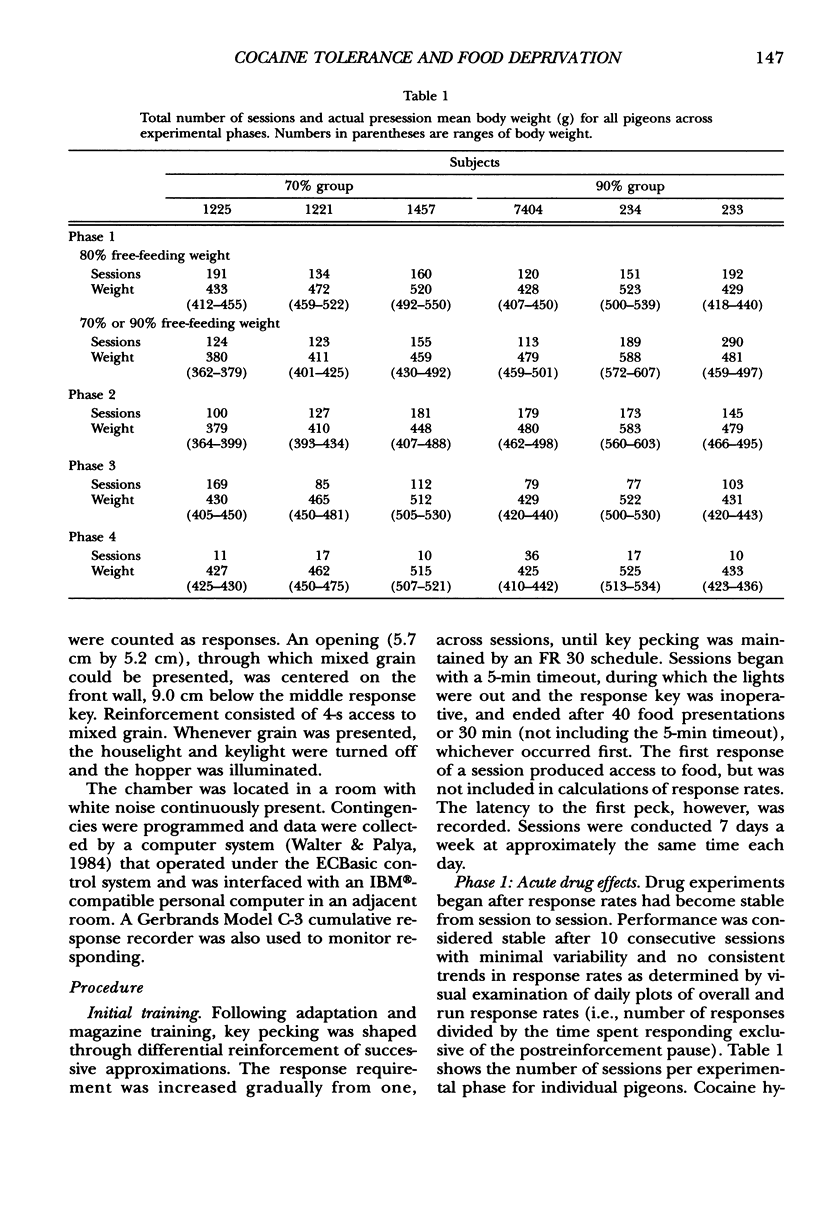
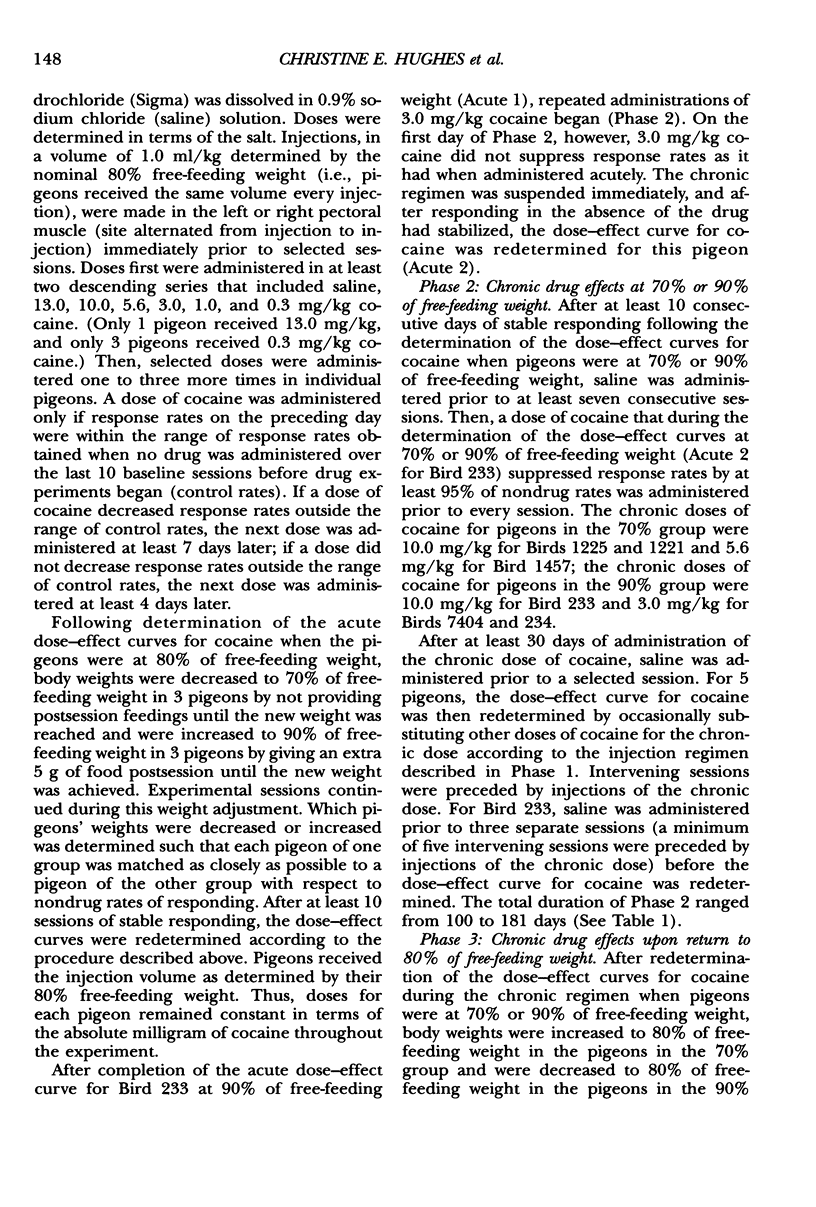
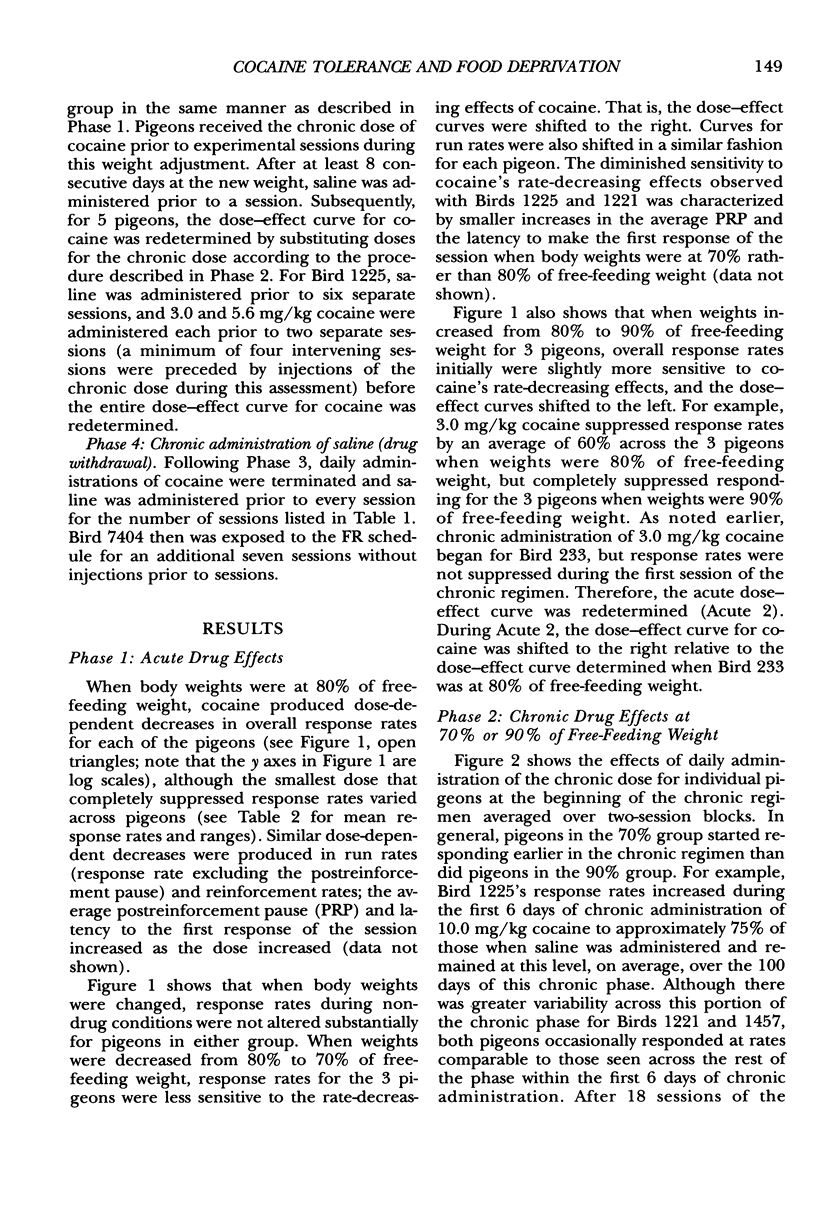
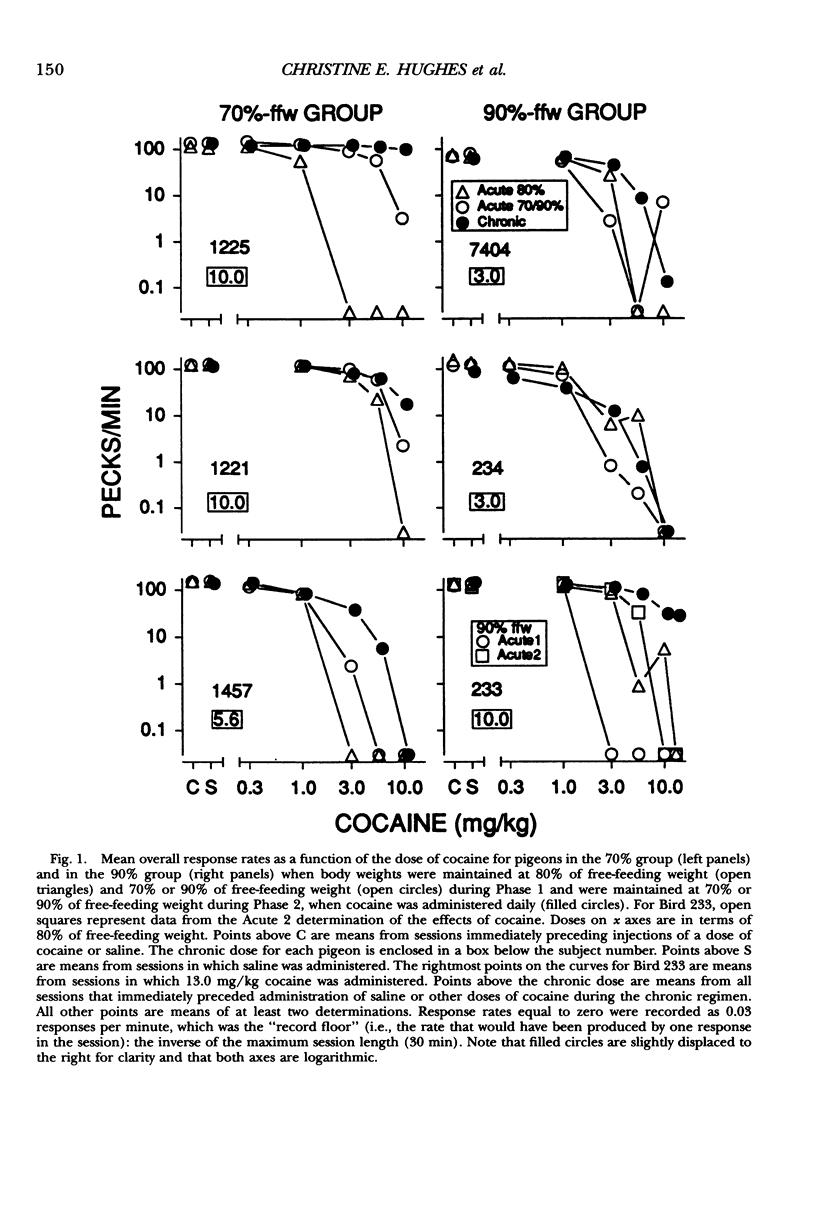
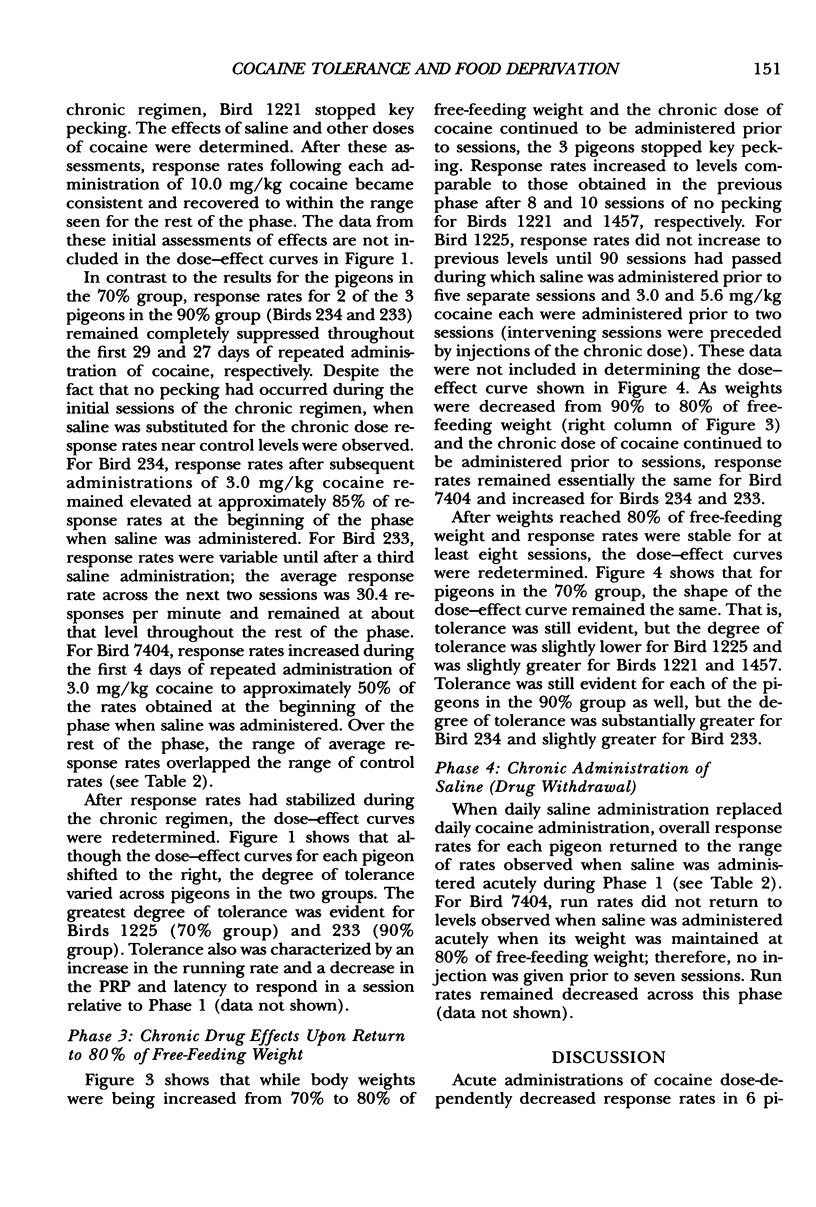
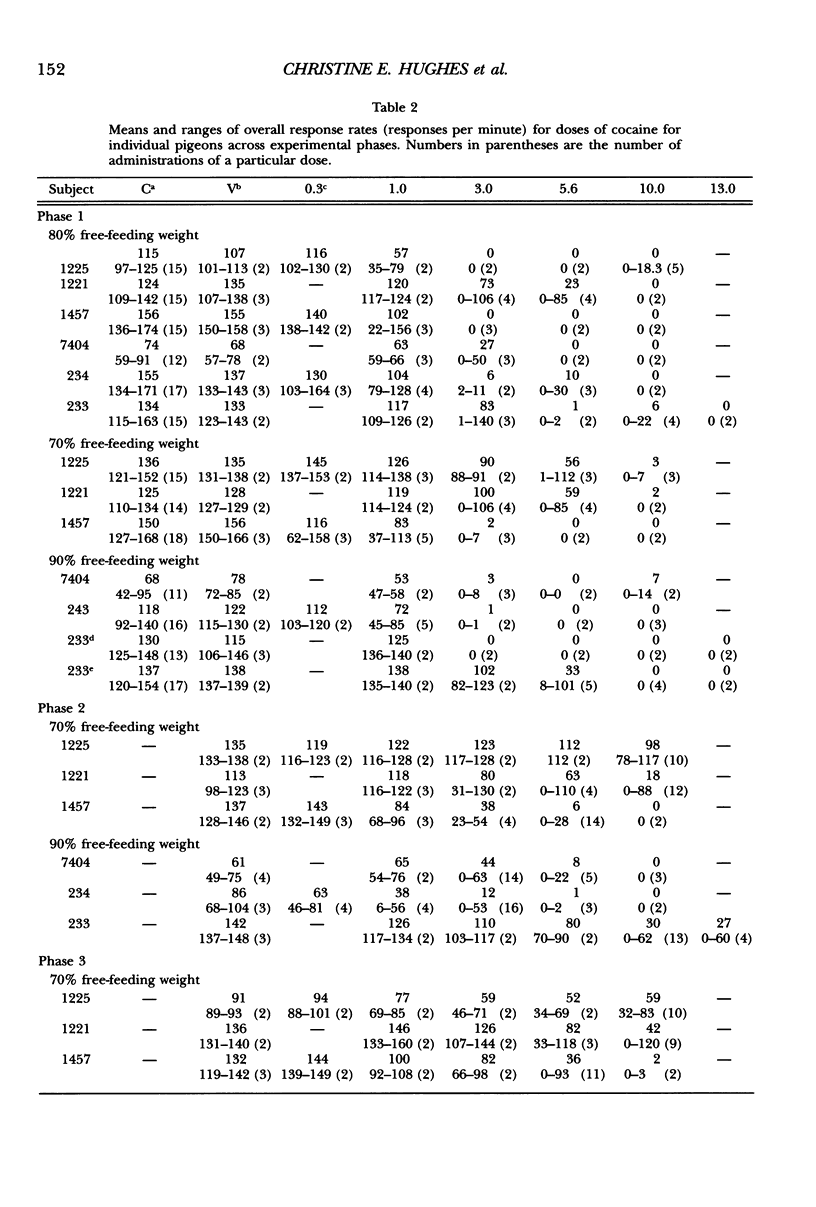
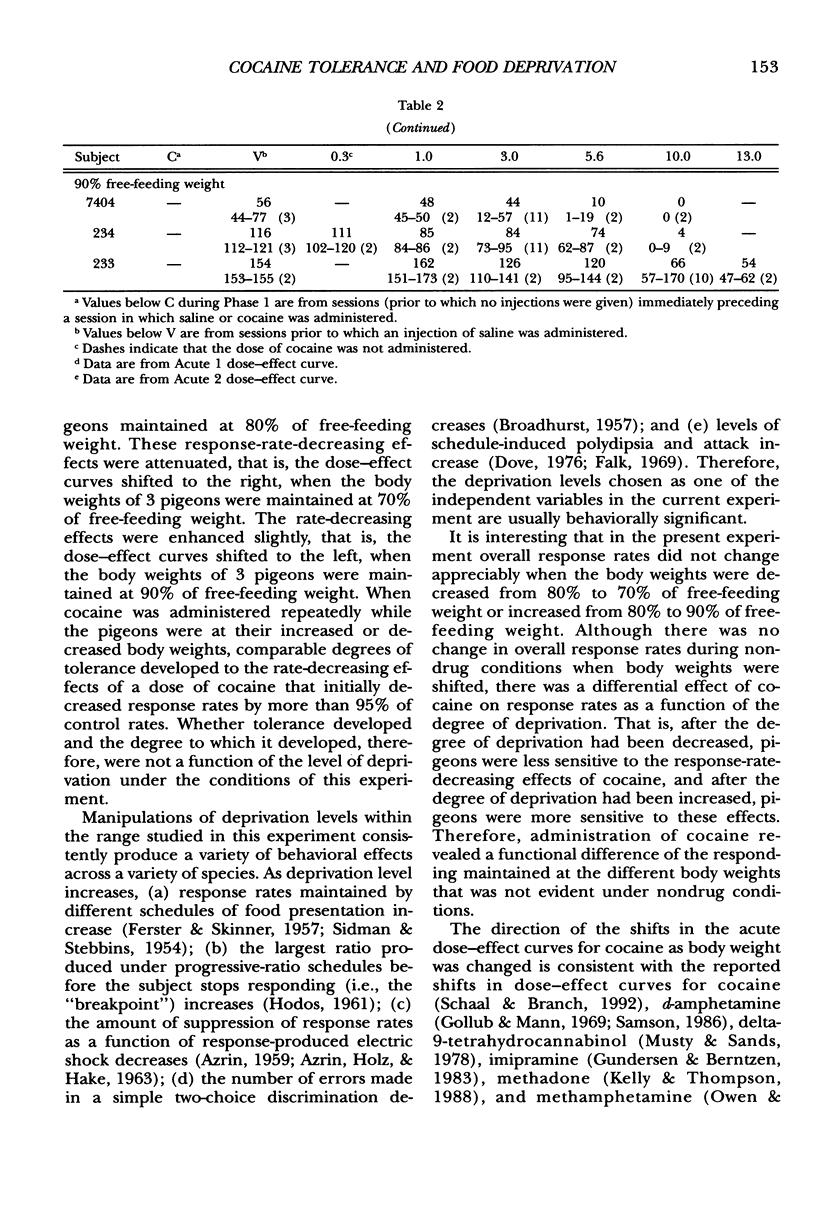
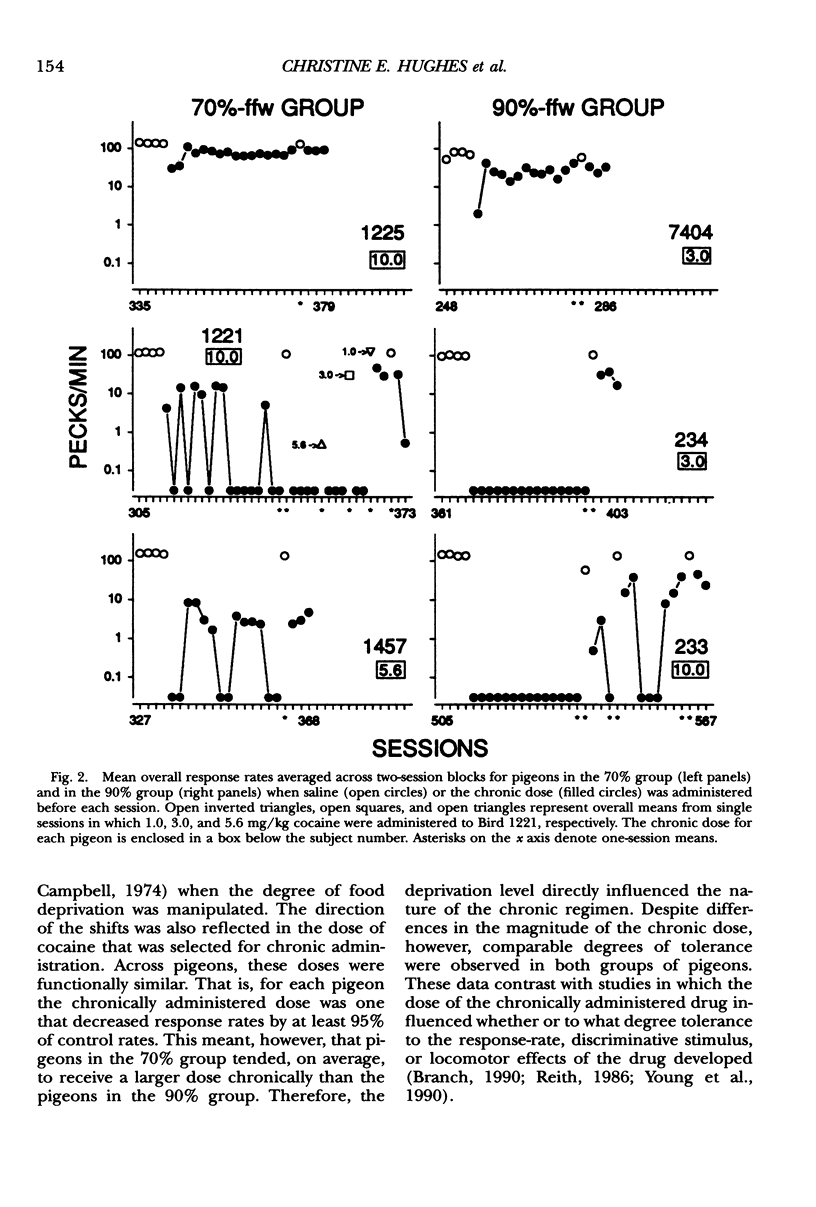
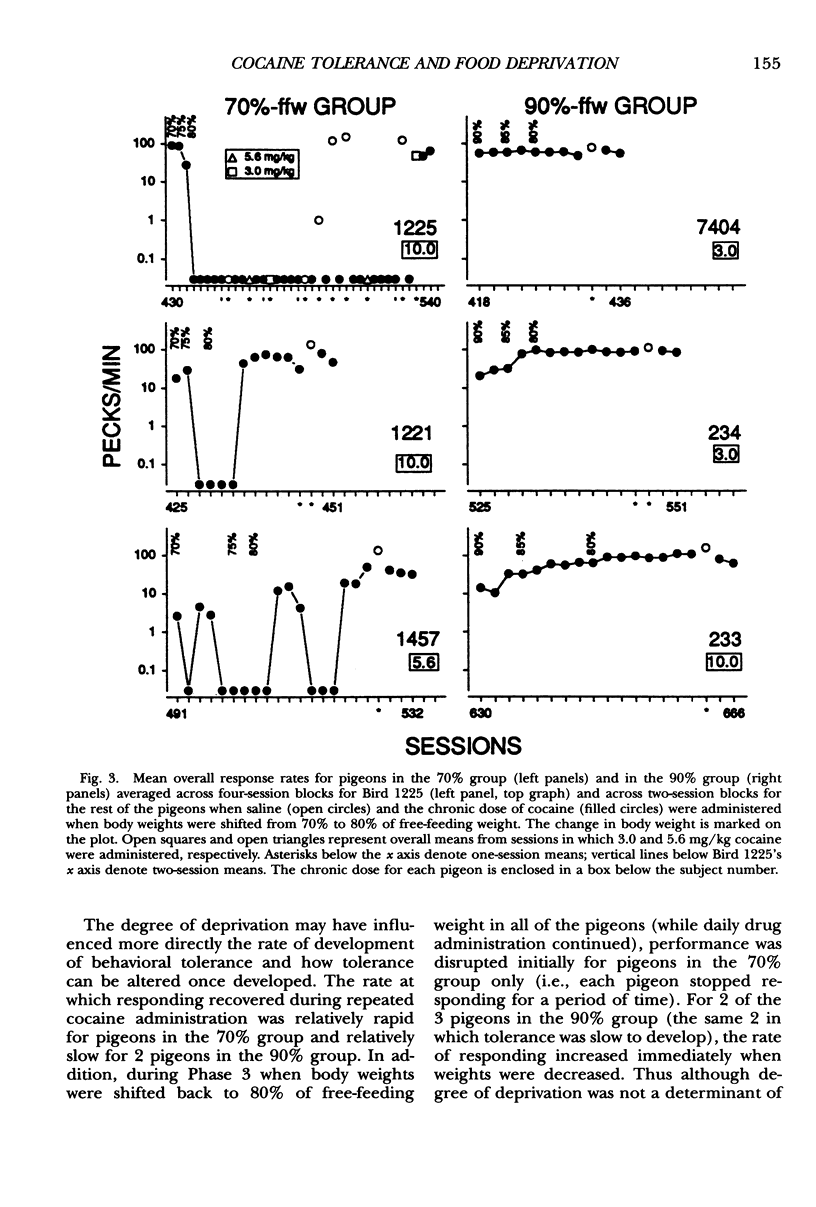
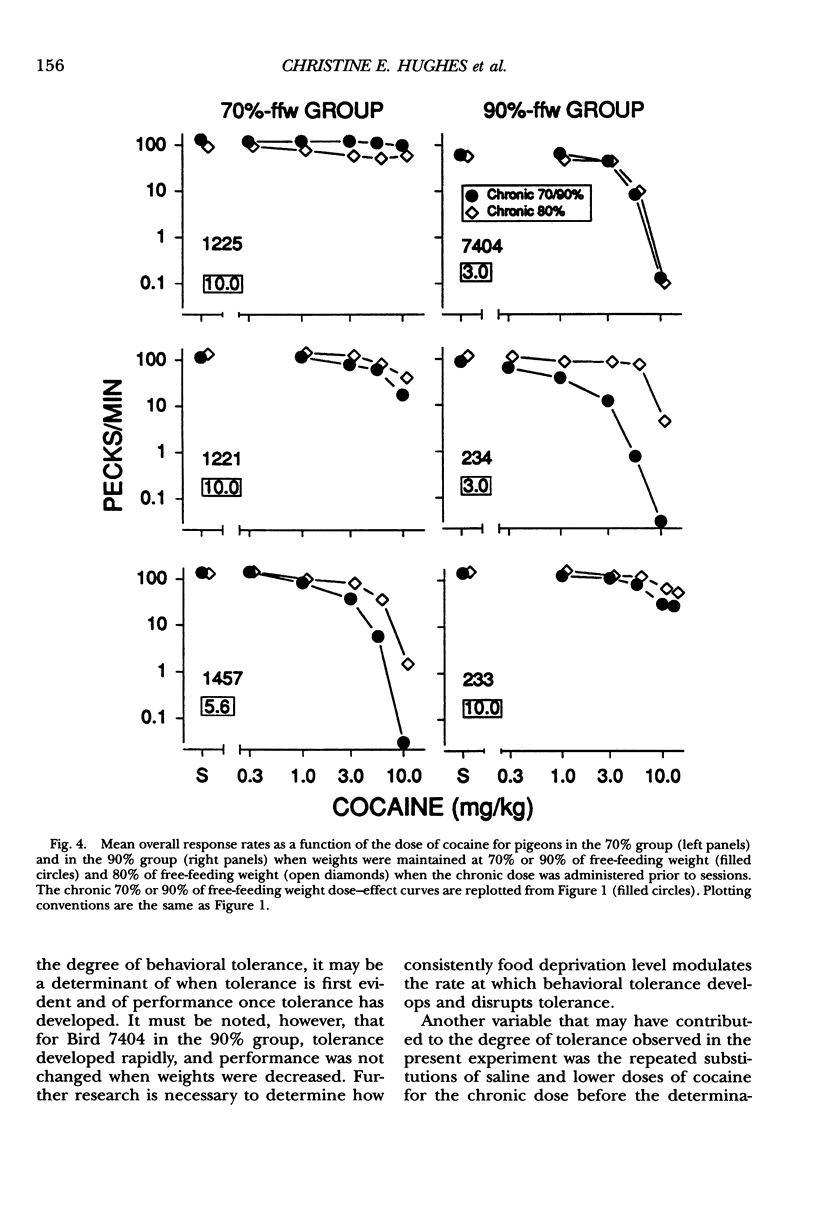
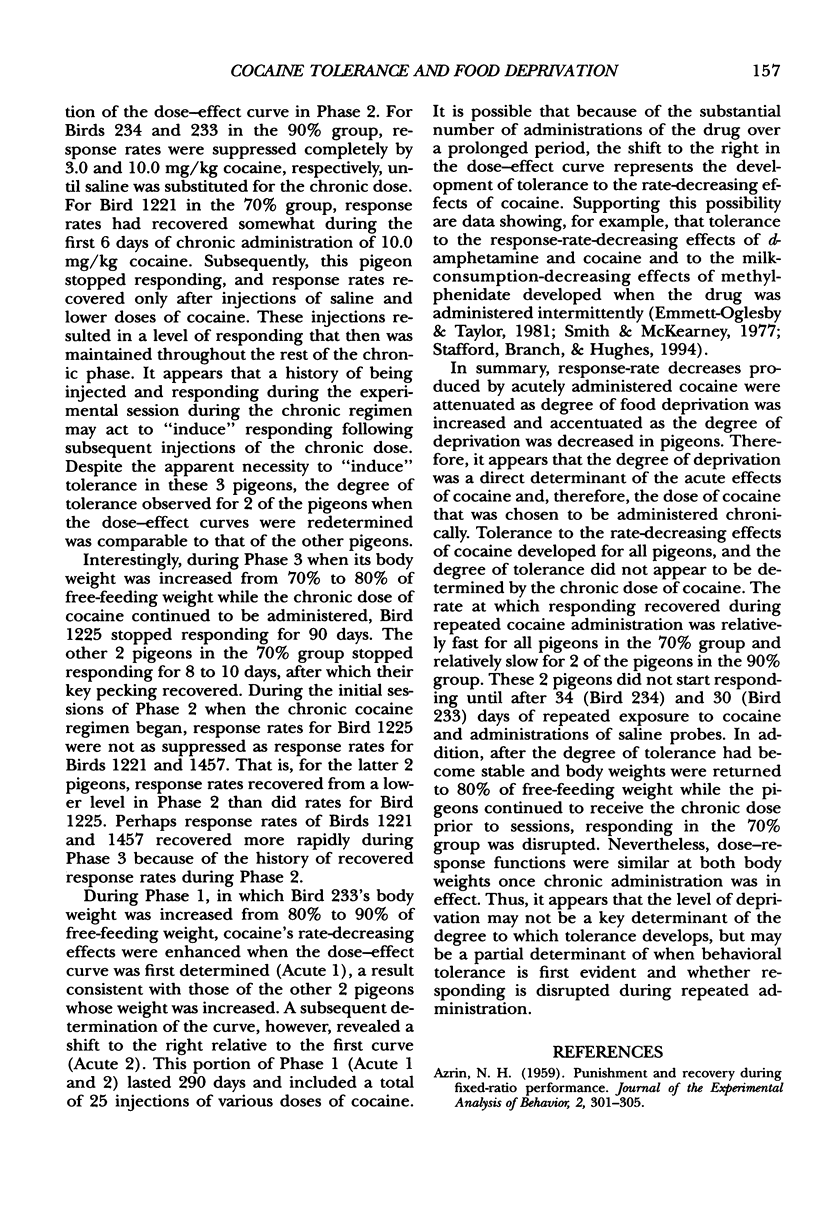
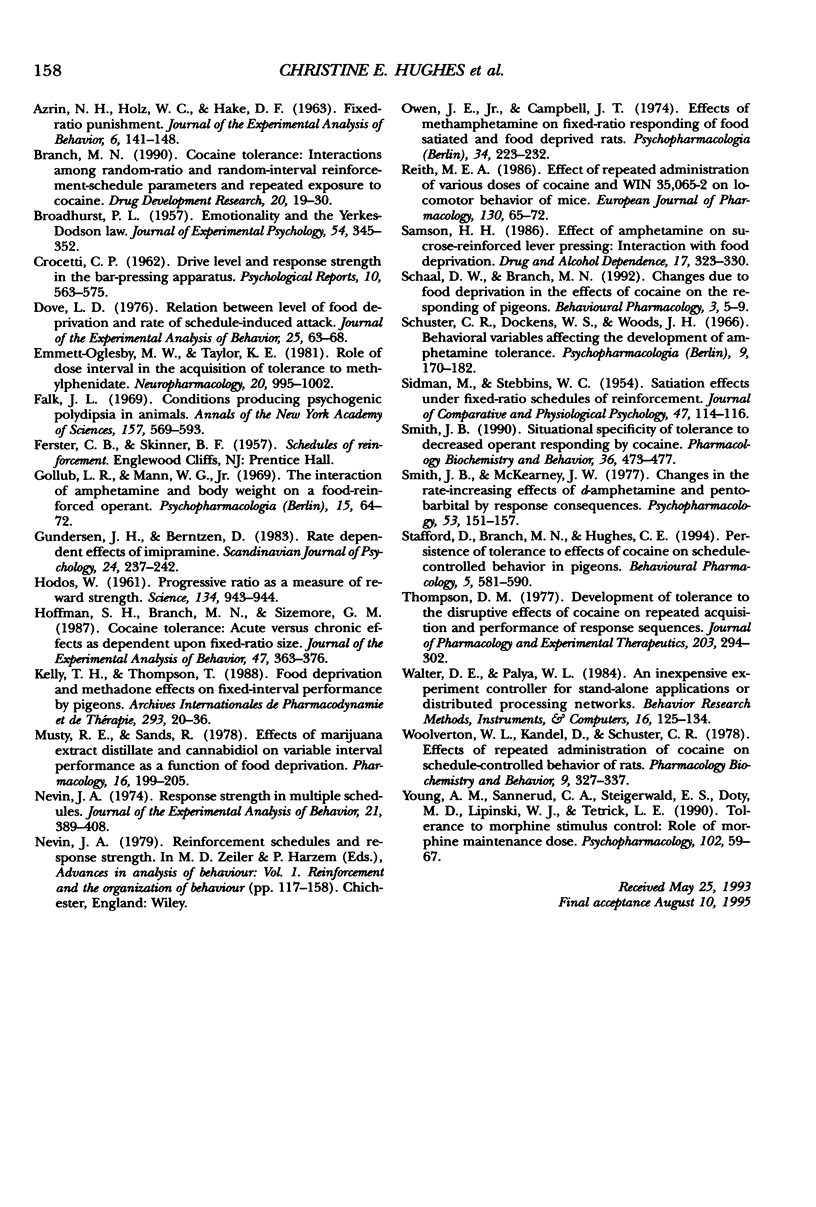
Selected References
These references are in PubMed. This may not be the complete list of references from this article.
- AZRIN N. H., HOLZ W. C., HAKE D. F. Fixed-ratio punishment. J Exp Anal Behav. 1963 Apr;6:141–148. doi: 10.1901/jeab.1963.6-141. [DOI] [PMC free article] [PubMed] [Google Scholar]
- AZRIN N. H. Punishment and recovery during fixed-ratio performance. J Exp Anal Behav. 1959 Oct;2:301–305. doi: 10.1901/jeab.1959.2-301. [DOI] [PMC free article] [PubMed] [Google Scholar]
- BROADHURST P. L. Emotionality and the Yerkes-Dodson law. J Exp Psychol. 1957 Nov;54(5):345–352. doi: 10.1037/h0049114. [DOI] [PubMed] [Google Scholar]
- Dove L. D. Relation between level of food deprivation and rate of schedule-induced attack. J Exp Anal Behav. 1976 Jan;25(1):63–68. doi: 10.1901/jeab.1976.25-63. [DOI] [PMC free article] [PubMed] [Google Scholar]
- Emmett-Oglesby M. W., Taylor K. E. Role of dose interval in the acquisition of tolerance to methylphenidate. Neuropharmacology. 1981 Oct;20(10):995–1002. doi: 10.1016/0028-3908(81)90031-9. [DOI] [PubMed] [Google Scholar]
- Falk J. L. Conditions producing psychogenic polydipsia in animals. Ann N Y Acad Sci. 1969 May 15;157(2):569–593. doi: 10.1111/j.1749-6632.1969.tb12908.x. [DOI] [PubMed] [Google Scholar]
- Gollub L. R., Mann W. G., Jr The interaction of amphetamine and body weight on a food-reinforced operant. Psychopharmacologia. 1969;15(1):64–72. doi: 10.1007/BF00410802. [DOI] [PubMed] [Google Scholar]
- Gundersen J. H., Berntzen D. Rate dependent effects of imipramine. Effects of imipramine on operant behaviour in rats at various levels of water deprivation. Scand J Psychol. 1983;24(3):237–242. doi: 10.1111/j.1467-9450.1983.tb00495.x. [DOI] [PubMed] [Google Scholar]
- HODOS W. Progressive ratio as a measure of reward strength. Science. 1961 Sep 29;134(3483):943–944. doi: 10.1126/science.134.3483.943. [DOI] [PubMed] [Google Scholar]
- Hoffman S. H., Branch M. N., Sizemore G. M. Cocaine tolerance: acute versus chronic effects as dependent upon fixed-ratio size. J Exp Anal Behav. 1987 May;47(3):363–376. doi: 10.1901/jeab.1987.47-363. [DOI] [PMC free article] [PubMed] [Google Scholar]
- Kelly T. H., Thompson T. Food deprivation and methadone effects on fixed-interval performance by pigeons. Arch Int Pharmacodyn Ther. 1988 May-Jun;293:20–36. [PubMed] [Google Scholar]
- Musty R. E., Sands R. Effects of marijuana extract distillate and cannabidiol on variable interval performance as a function of food deprivation. Pharmacology. 1978;16(4):199–205. doi: 10.1159/000136767. [DOI] [PubMed] [Google Scholar]
- Nevin J. A. Response strength in multiple schedules. J Exp Anal Behav. 1974 May;21(3):389–408. doi: 10.1901/jeab.1974.21-389. [DOI] [PMC free article] [PubMed] [Google Scholar]
- Owen J. E., Jr, Campbell J. T. Effects of methamphetamine on fixed-ratio responding of food satiated and food deprived rats. Psychopharmacologia. 1974 Jan 14;34(3):223–232. doi: 10.1007/BF00421963. [DOI] [PubMed] [Google Scholar]
- Reith M. E. Effect of repeated administration of various doses of cocaine and WIN 35,065-2 on locomotor behavior of mice. Eur J Pharmacol. 1986 Oct 14;130(1-2):65–72. doi: 10.1016/0014-2999(86)90184-6. [DOI] [PubMed] [Google Scholar]
- SIDMAN M., STEBBINS W. C. Satiation effects under fixed-ratio schedules of reinforcement. J Comp Physiol Psychol. 1954 Apr;47(2):114–116. doi: 10.1037/h0054127. [DOI] [PubMed] [Google Scholar]
- Samson H. H. Effect of amphetamine on sucrose-reinforced lever pressing: interaction with food deprivation. Drug Alcohol Depend. 1986 Jul;17(4):323–330. doi: 10.1016/0376-8716(86)90081-5. [DOI] [PubMed] [Google Scholar]
- Schaal D.W., Branch M.N. Changes due to food deprivation in the effects of cocaine on the responding of pigeons. Behav Pharmacol. 1992 Feb;3(1):5–9. doi: 10.1097/00008877-199203010-00003. [DOI] [PubMed] [Google Scholar]
- Schuster C. R., Dockens W. S., Woods J. H. Behavioral variables affecting the development of amphetamine tolerance. Psychopharmacologia. 1966;9(2):170–182. doi: 10.1007/BF00404721. [DOI] [PubMed] [Google Scholar]
- Smith J. B., McKearney J. W. Changes in the rate-increasing effects of d-amphetamine and pentobarbital by response consequences. Psychopharmacology (Berl) 1977 Jul 18;53(2):151–157. doi: 10.1007/BF00426485. [DOI] [PubMed] [Google Scholar]
- Stafford D., Branch M.N., Hughes C.E. Persistence of tolerance to effects of cocaine on schedule-controlled behavior in pigeons. Behav Pharmacol. 1994 Oct;5(6):581–590. doi: 10.1097/00008877-199410000-00003. [DOI] [PubMed] [Google Scholar]
- Thompson D. M. Development of tolerance to the disruptive effects of cocaine on repeated acquisition and performance of response sequences. J Pharmacol Exp Ther. 1977 Nov;203(2):294–302. [PubMed] [Google Scholar]
- Woolverton W. L., Kandel D., Schuster C. R. Effects of repeated administration of cocaine on schedule-controlled behavior of rats. Pharmacol Biochem Behav. 1978 Sep;9(3):327–337. doi: 10.1016/0091-3057(78)90293-9. [DOI] [PubMed] [Google Scholar]
- Young A. M., Sannerud C. A., Steigerwald E. S., Doty M. D., Lipinski W. J., Tetrick L. E. Tolerance to morphine stimulus control: role of morphine maintenance dose. Psychopharmacology (Berl) 1990;102(1):59–67. doi: 10.1007/BF02245745. [DOI] [PubMed] [Google Scholar]


